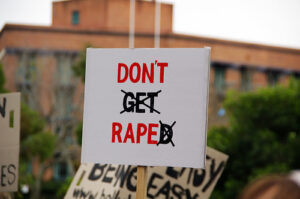I’ve been following the #metoo movement, started by Tarana Burke, and became widespread when Alyssa Milano posted about it following the dozens of allegations of sexual harassment and assault against filmmaker Harvey Weinstein.

I wish things like the #metoo movement weren’t necessary. I feel sad and disgusted when I think about the sheer number of people who have been sexually harassed, abused, and assaulted. How can anyone feel entitled to take advantage of another person like this?
These predators thrive in silence. They rely on the fear and shame they invoke in their victims so they can continue to prey on others. #Metoo helps break the silence, and give survivors a voice. It breaks the pattern of downplaying these incidents and staying silent out of fear of the repercussions that could result from speaking out against these perpetrators.
As a survivor, I’m grateful for #metoo.

It’s validating and empowering to see people speaking out about their abuse. It reminds me that I’m not alone. It exposes the vastness of this problem. Sexual assault doesn’t just happen to “other people,†it happens to your friends, your family, your co-workers, people you look up to – people you know.
Although reading about other people’s #metoo experiences is validating, it’s also painful. I read these posts to honor and validate the survivor, but I also read them to see that I’m not alone in my experience as a survivor. My fellow survivors know what it’s like to be taken advantage of, to be frozen in fear, and what it’s like to be physically violated.
When I read a #metoo story like McKayla Maroney’s, who was repeated sexually assaulted by the USA Gymnastics team doctor, Dr. Larry Nassar, for years starting at age 13, I read her words, and I identify with her experience. It reminds me of what it feels like to be trapped, helpless, and covered with the sensation of icky-ness. Even as I type, I pause to shake my hands, trying to rid myself of that wave of shame.

Reading these accounts is triggering. As I was getting ready for work one morning last week, I wanted to climb back into bed and avoid the world instead of going to the office. Enveloped in shame, I could barely look anyone in the eye. When I went to my therapy appointment, I spent most of the session curled up on my therapist’s couch while we processed what I was feeling. (I couldn’t look him in the eye either.) He reminded me to take extra care of myself.
Why do I share all this? Because calling out the people who commit these disgusting acts is only part of the story. The impact on the survivors from being sexually harassed or assaulted can be devastating. It was for me.
It’s not something I went through, it’s something I live with. I’m getting better, thanks to therapy, medication, treatment, 12-step programs, and having a loving supportive people around me, though I still have days where I struggle with depression and I’m burdened with shame. Going to 12-step meetings taught me that “our secrets keep us sick,†so I have to share my story to help myself heal.
I support the #metoo movement and survivors sharing their experiences even though it can be triggering for me. This problem will only continue if we ignore it.
Thank you to everyone who validates me by sharing their story.